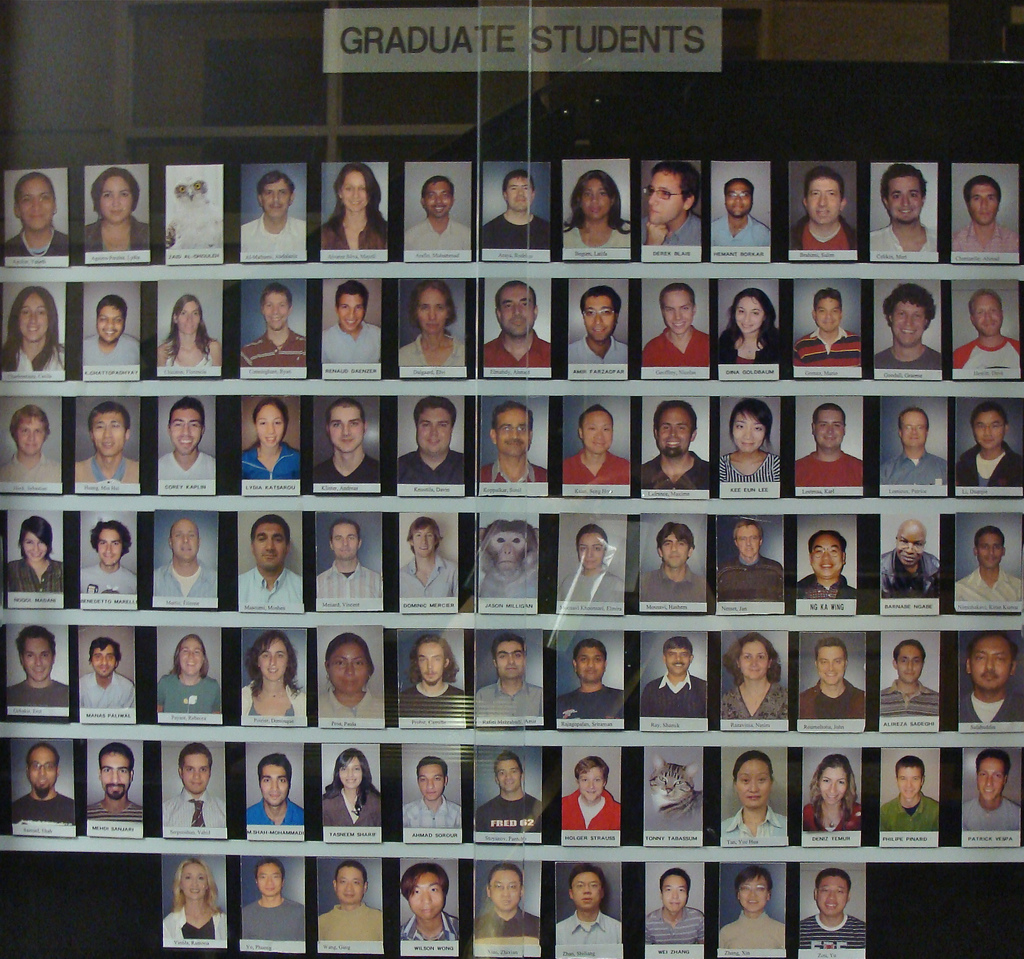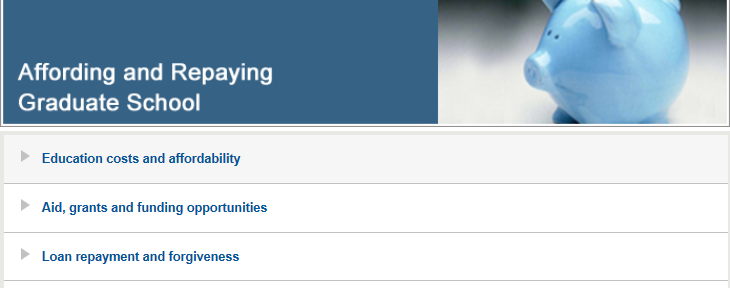
What rights should psychology graduate students expect no matter where or what they study? (Image source: Julia Manzerova on Flickr. Some rights reserved.)
If I had a dollar for every time I’ve heard a graduate student in psychology discuss aspects of their training or education that seemed inequitable, I could pay back all my loans.
Too often in graduate school, students come across situations in which they believe their rights have been infringed upon in some way. When this occurs, many students feel at a loss for how to advocate for themselves and what they can or should be able to reasonably advocate for. The result for many students is dissatisfaction, frustration, and occasionally leaving a training program or experience.
The APAGS Committee has honed in on this student concern over the past year and opted to move forward with creating a student “bill of rights.” This was a very detailed process that included a literature review of various student right documents from across the world, drafting lists of rights based on this literature and our own experiences, and completing many revisions with input from APAGS leaders and many outside resources.
At long last, the APAGS Committee voted in December to approve a document titled, “Position Statement on the Rights of Psychology Graduate Students.” The Committee is planning to distribute these rights across various platforms and to a variety of constituents. The Committee is even considering bringing the document to APA’s Council of Representatives for consideration as an official policy document! That’s a huge step, and we will keep you posted.
In the meantime, we hope that students, programs, and other interested parties can use this document to their benefit. Use it to advocate for your own rights and thereby create a program or training experience of the highest caliber. If you have other ideas and reactions, we would love to hear from you. Leave a comment below!
Here now is the text of our position statement, which is also available on our website.
Position Statement on the Rights of Psychology Graduate Students
Preamble
The American Psychological Association of Graduate Students (APAGS) deems the rights described in this document to be indispensable to the fair, equitable and respectful treatment of every psychology graduate student throughout their education and training. The protection of these rights fosters the highest quality graduate training experience. APAGS considers these rights essential, not aspirational, and we urge graduate programs to implement these rights in their unique settings and training environments. We encourage current and prospective students to utilize these rights in making informed graduate program selections and in advocating for themselves as issues arise.
1. Institutional Environment
1.1 Right to respectful treatment by faculty members, colleagues, staff, and peers.
1.2 Right to have professional and personal information handled in a sensitive and respectful manner such that personal information is only disclosed when it is deemed necessary for educational or training purposes, and that students are informed prior to any such disclosure (See Ethical Standard 7.04).
1.3 Right to affordable insurance inclusive of health, vision, dental, and mental health care coverage.
2. Program Policies
2.1 Right to publicly available, accurate, and up-to-date descriptions of costs, the availability of financial support, and the likelihood of ongoing support throughout training (e.g., percent of students with full and partial financial support during year one, year two, etc.; available funding options), to be provided prior to or immediately following the program’s interviews for prospective students (See Ethical Standard 7.02).
2.2 Right to accurate and up-to-date information from research advisors and thesis/dissertation committee members on professional factors that could impact student training, career development, and timely program completion.
2.3 Right to access and exercise formal written policies regarding leave and accommodations as they pertain to pregnancy, parenting/caregiving, bereavement, medical or mental illness, and disability.
2.4 Right to access and exercise formal written policies and procedures regarding academic and placement/internship requirements, administrative procedures, evaluation, advisement, retention, average “time to degree,” and termination (See Ethical Standard 7.02).
2.5 Right to express opinions and have representation on campus committees relevant to professional development, with voting privileges where appropriate.
2.6 Right to exemption from new graduation or program requirements, developed after admission, that might result in a delay of graduation.
3. Professional and Educational Training Opportunities
3.1 Right to appropriate professional training (e.g., teaching, research, clinical practice) in the current standards and practices of the discipline and specialty area (See Ethical Standard 7.01).
3.2 Right to be evaluated by faculty consistent with current ethical practices in employment, progression through the program, and grading, solely on the basis of academic performance, professional qualifications, and/or conduct (See Ethical Standard 7.06).
3.3 Right to quality mentorship.
3.4 Right to change advisors and committee members for professional and personal needs.
3.5 Right to receive timely, ongoing feedback on all areas of trainee competency and the opportunity to address growth areas with support from faculty.
3.6 Right to co-authorship in publications when the student has made significant contributions of ideas or research work (See Ethical Standards 8.11 and 8.12 a-c).
3.7 Right to freely communicate and collaborate with other academic colleagues.
3.8 Right to lead, assemble, and participate in organizations and activities outside the academic program.
3.9 Right to engage in self care as a routine practice throughout training (See Ethical Standards 3.05 and 3.06).
4. Work Environment
4.1 Right to fair compensation for services provided during training (e.g., graduate, teaching, and research assistantships).
4.2 Right for students providing services during training (e.g., teaching, research, clinical, and administrative graduate assistantships) to enjoy the recognitions, rights, privileges, and protections afforded to employees under state, provincial, territorial, and national labor laws.
4.3 Right to study and work in an environment free of exploitation, intimidation, harassment, or discrimination based on one’s student status, race, ethnicity, skin color, national origin, religion, political beliefs, economic status, age, sex, gender identity, gender expression, sexual orientation, marital status, pregnancy or parental status, disability, medical or mental health conditions, ancestry, citizenship, military veteran status, or any other identity salient to the individual in admissions and throughout education, employment, and placement (See Principle E and Ethical Standards 3.01, 3.02, 3.03, 3.08).
4.4 Right to work under clearly expressed and mutually agreed-upon job descriptions and work or training conditions.
4.5 Right to perform only those tasks that relate to academic program requirements, professional development, and/or job duties.
4.6 Right to provide constructive and professional feedback to supervisors, directors, administrators, and staff concerning the quality and content of supervision
5. Appeals and Grievances
5.1 Right to clearly defined official grievance procedures and informal complaint procedures.
5.2 Right to whistleblower protection for exposing professional, ethical, or legal violations (See Ethical Standard 1.08).
5.3 Right to due process for any accusation of violation or infraction.
5.4 Right to be free of reprisals for exercising the rights contained in this document (See Ethical Standard 1.08).





 Editor’s note: This post originally appeared in near-identical form in the
Editor’s note: This post originally appeared in near-identical form in the 

